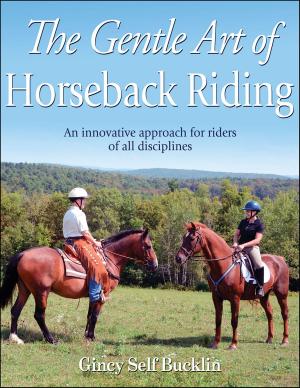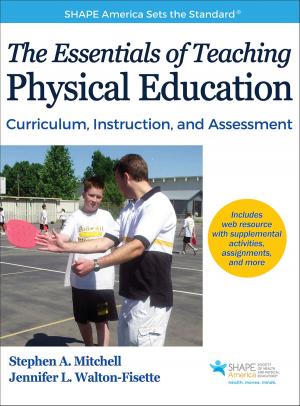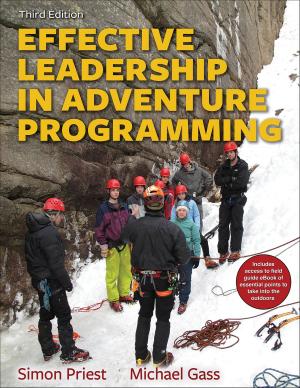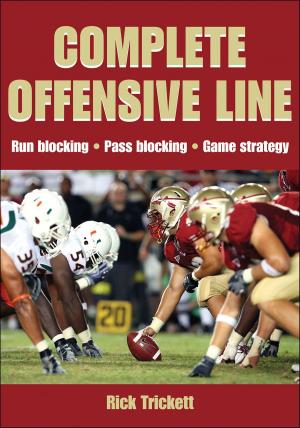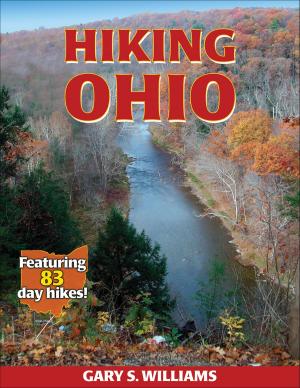Outdoor Adventure Education
Foundations, Theory, and Research
Nonfiction, Sports, Outdoors, Outdoor Skills| Author: | Alan Ewert | ISBN: | 9781492583714 |
| Publisher: | Human Kinetics, Inc. | Publication: | January 21, 2014 |
| Imprint: | Human Kinetics, Inc. | Language: | English |
| Author: | Alan Ewert |
| ISBN: | 9781492583714 |
| Publisher: | Human Kinetics, Inc. |
| Publication: | January 21, 2014 |
| Imprint: | Human Kinetics, Inc. |
| Language: | English |
Outdoor Adventure Education: Foundations, Theory, and Research steeps students in the theories, concepts, and developments of outdoor adventure education, preparing them for careers in this burgeoning field.
This text is based on author Alan W. Ewert’s pioneering book Outdoor Adventure Pursuits: Foundations, Models, and Theories. Ewert and Sibthorp, both experienced practitioners, researchers, and educators, explore the outdoor adventure field today in relation to the changes that have occurred since Ewert’s first book. The authors present a comprehensive text on outdoor and adventure foundations, theories, and research that will provide the basis for the next generation of professionals.
Outdoor Adventure Education offers a comprehensive view of the expanding discipline of outdoor adventure education in its various settings. In addition to its foundational, theoretical, and conceptual insights, this text presents the following:
• Why This Chapter Is Important introductions that present snapshots of ideas and concepts and how they apply to future professionals
• Chapter discussion and research questions to expand knowledge and research skills to support the learning gained through the book
• Sidebars from well-known international researchers who present their views on the chapter topics
The book is presented in three parts. Part I explores foundational issues of outdoor adventure education, offering an overview of the field and examining both historical developments and current practices. Part II investigates theoretical constructs and extant theories, emphasizing how they inform the professional’s view of program evidence, design, and implementation. In part III, the authors delve into research and evidence-based practices in the field and look at evolving trends and issues as outdoor adventure education continues to grow.
Outdoor Adventure Education uses evidence, design, and implementation as its underlying themes. It shows students and professionals how to apply theories and research in constructing frameworks for outdoor adventure education experiences and how to evaluate those experiences. As such, it is an indispensable resource that prepares students and professionals alike for success in their careers in outdoor adventure education.
Outdoor Adventure Education: Foundations, Theory, and Research steeps students in the theories, concepts, and developments of outdoor adventure education, preparing them for careers in this burgeoning field.
This text is based on author Alan W. Ewert’s pioneering book Outdoor Adventure Pursuits: Foundations, Models, and Theories. Ewert and Sibthorp, both experienced practitioners, researchers, and educators, explore the outdoor adventure field today in relation to the changes that have occurred since Ewert’s first book. The authors present a comprehensive text on outdoor and adventure foundations, theories, and research that will provide the basis for the next generation of professionals.
Outdoor Adventure Education offers a comprehensive view of the expanding discipline of outdoor adventure education in its various settings. In addition to its foundational, theoretical, and conceptual insights, this text presents the following:
• Why This Chapter Is Important introductions that present snapshots of ideas and concepts and how they apply to future professionals
• Chapter discussion and research questions to expand knowledge and research skills to support the learning gained through the book
• Sidebars from well-known international researchers who present their views on the chapter topics
The book is presented in three parts. Part I explores foundational issues of outdoor adventure education, offering an overview of the field and examining both historical developments and current practices. Part II investigates theoretical constructs and extant theories, emphasizing how they inform the professional’s view of program evidence, design, and implementation. In part III, the authors delve into research and evidence-based practices in the field and look at evolving trends and issues as outdoor adventure education continues to grow.
Outdoor Adventure Education uses evidence, design, and implementation as its underlying themes. It shows students and professionals how to apply theories and research in constructing frameworks for outdoor adventure education experiences and how to evaluate those experiences. As such, it is an indispensable resource that prepares students and professionals alike for success in their careers in outdoor adventure education.





